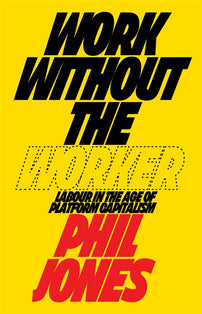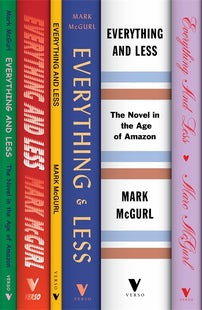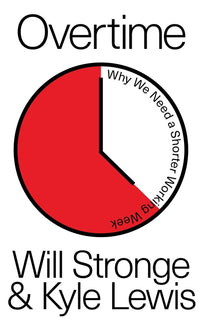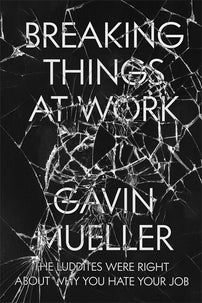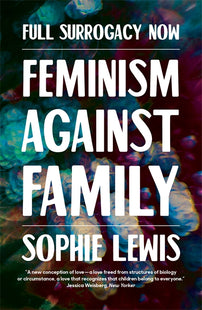Maid’s Bibliotherapy
Maid, the recent Netflix miniseries, follows Alex as she moves from underemployed gig worker to a creative writing degree. In doing so it embodies another form of the capitalist progress narrative where everone becomes an indebted investor in their own human capital.
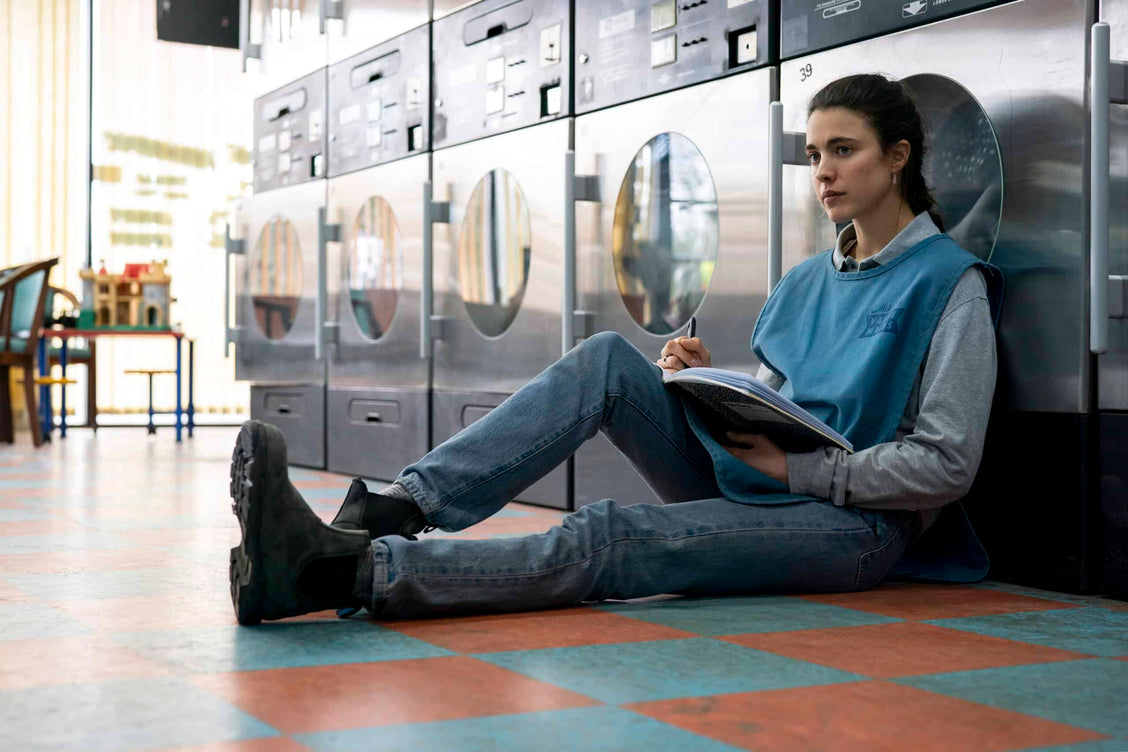
Maid, the Netflix miniseries that premiered in October 2021, follows 23-year-old Alex as she escapes an abusive relationship and struggles to climb out of poverty. Fleeing the relationship in secret with her 2-yr old daughter Maddie, she spends days looking for work and housing, the income from her ex that she once depended on now gone, while navigating welfare applications, keeping track of her erratic mother, and searching for decent daycare. Luckily, a few episodes in, with help from a variety of state programs and the loan of a car from an old acquaintance, she lands on her feet temporarily, living in a shelter for abused women and working a casualized cleaning job.
The job is presented to her like a handout, one that she should feel lucky to have. The job also acts as a ticket for her to be able to access other welfare programs. State support is not a bulwark against total destitution, but a reward for staying in the workforce, no matter how terrible it is. And her job does suck. She can end up working for free if a client refuses to pay. She has to buy her own cleaning supplies and transport herself by her own means to the houses she cleans. She has no job security, and she eventually gets fired after going behind her boss’s back to take money directly from a client after a last-minute cancellation. Losing just one shift undercuts Alex’s ability to provide for herself and her daughter, but her boss couldn’t care less about that.
Yet beyond this will to survive, and the drudgery of her cleaning work, we learn that Alex’s real aspiration is creative writing. In a flashback we see her reading aloud at a café where she works as a server. It is here that she meets her ex, Sean, who is sitting with a book at his café table. Sean’s bookishness is confirmed by his interest in Alex’s performance, and we understand that it makes his eventual decline even more tragic: from cultured patron of the arts to abusive alcoholic. Sober Alex, however, continues with her writing. We regularly see her using her notebook to write about her work as a cleaner, chronicling the houses and clients that she encounters.
Alex’s chronicle becomes important when she develops a friendship with a wealthy lawyer, Regina, who is initially a villain of the show after refusing to pay for her cleaning service because of some small mistake. But when Regina splits up with her partner, and then struggles with the early days of postpartum alone, she needs Alex’s help. When Alex accidentally leaves her notebook in Regina’s office, Regina reads it and learns that Alex is a writer – and a good one. For Regina, the notebook is a sign. The activity of writing signifies a thoughtfulness and depth that, throughout the series, separates Alex from other poor people. Writing is one of the signal habits meant to dignify her and make her especially sympathetic. When Regina recognizes Alex’s talent, she is seeing what viewers of the show have already grasped: Alex is special. Their relationship can then evolve into something like friendship – they become, at least, not worker and boss, but mentor-benefactor and recipient-tutee. Regina helps with Alex’s admission to the creative writing program at the University of Montana, and also connects her to a lawyer friend who takes her custody case against Sean pro bono.
The fact that Alex writes, and wants to train as a writer, bespeaks her industrious commitment to bettering her situation. Alex writes to express what she has gone through, as a means of working through suffering toward something else. The activity of writing is in this way a kind of self-therapy. But it is also a way of practicing an activity that she will eventually rely upon to grant her a better livelihood and lifestyle. It is to be her very path out of poverty, the road to real self-betterment. In this respect the show cleaves close to the memoir on which it is based, Stephanie Land’s Maid: Hard Work, Low Pay and a Mother’s Will to Survive, which, as Sophie Lewis writes, connects Land’s eventual success to her dedication to being “the hardest worker,” and uses the idea of hard work to demonize other poor people who fail to meet her own industrious standard.
It is hard not to contrast the meaningful, sustaining activity that happens in Alex’s writing with the day-to-day grind of her life as a cleaner: as fulfilling personal expression versus alienated drudgery. The point of her earlier experience is that Alex’s situation, however tough, is temporary. When she gets into the creative writing program, the nature of the support she receives then shifts with it. There are some grant funds involved, but there are also loans: she moves from being an under-employed casual cleaning person living in supported housing to life as an indebted student living in a dorm. To be clear, this is the uplift narrative. Accessing the creative writing program is a triumph of upward mobility, part of the path to middle-class status, a university degree. She may not be making money, but the fact that she is enrolled in university means she is investing in her human capital with an eye toward future employment. She is on her way toward becoming a productive worker-citizen. Sure, she is going into debt, but debt is something she will need to further clinch her adult independence. Without debt you can’t secure that degree – and then pay down debt to earn that good credit score, maybe one day buy a house, get those accoutrements of the successful middle class family home that Alex really craves.
Alongside Regina, the show features a roster of non-white characters who see something special in Alex and go out of their way to help her. There is Nate, a romantic interest who gives her a car and welcomes her, her mother and Maddie to his house for a time. And there is Denise, the woman who runs the shelter and who asks Alex to run the writing workshop. What is the effect of Alex being positioned as the recipient of this largess from non-white characters? Once again it distinguishes and dignifies Alex. The people who recognize her talent are not poor deadbeats but rather respectable professionals with specialized degrees and cultured dispositions.
More than that though, these relationships contribute to the false notion that there is no particularly racialized dynamics of access to supports – that there is no racism that explains why Alex is able to achieve what so many cannot – that it is, after all, just a matter of her being a talented, mature, hardworking, moral, stable person, deserving of small hand-outs while she finds her inevitable footing as a productive citizen. Land has acknowledged in interview that “I am a very palatable and very likable poor person because I am white.” Yet it must be said that the show itself never explicitly address Alex’s whiteness. Opting not to foreground the racial dynamics of the show’s relationships then figures Alex’s hard work and emotional maturity as the determining factors in her “deserving” success. It contributes also to the show’s largely positive presentation of state support, which we glimpse not as a racialized sorting mechanism separating out the deserving poor, nor as a means of keeping people tied to the labor market, but via its benevolent mediators: a collection of strong, kind women – albeit mired in bureaucracy – who help Alex navigate the available programs, taking on a burden of care for her until she can get her life sorted out enough that she is able to stop needing such assistance.
Throughout, it is writing that keeps Alex on the good path. In the moment, writing provides her with an opportunity for quiet reflection. In the long term, it is aspirational, keeping her moving toward an identifiable desirable goal. It also allows her to remain a devoted mother – never unkind, flustered, or even detached. A consistent narrative of the show is that everything she does is for her daughter, conflating reproductive futurity and her diligent self-betterment. She takes care not just of Maddie but of her own mother, Paula, an artist who is herself a chronic victim of abuse at the hands of men. Paula struggles with addiction, not least to love, and gives men far more than she should – even her own home is lost to a man’s nefarious swindling. She is fundamentally unable to care for herself let alone for Alex and Maddie. As the show draws to a close, we are meant to accept that she is beyond help, so it is a sign of emotional progress when Alex moves away to start university, finally transcending her deep compulsion to be her mother’s keeper.
Through writing, Alex even eventually takes on a pastoral relationship to other women in the shelter, as she counsels a group in using memoir as a recovery pedagogy. She encourages these women to write about a time that they remember feeling happy, and then to share their reflections with the group if they wish to. In a common therapeutic practice, the activity of writing about a positive memory is a way of reminding yourself that your current situation is a moment in your life, rather than who you are in some inescapable way. The bad times are just that: bad times that will pass. The women share their happy memories with each other and applaud each other’s writing. It is a deeply affirming, convivial activity of openness and of care, and Alex is the one who brings it to them: an expression and expansion of her own writing practice, also autobiographical and therapeutic.
There is a commonsense narrative about the growing numbers of creative writing programs, one that Maid’s narrative supports: that they appeal to generations of young people who think of writing as a therapeutic activity of self-expression and self-care, and who prefer to read about others’ real personal experiences, ideally as mirrors reflecting one’s own life. Yet there are material facts on the ground, less often noted, that elicit these self-writing modalities. In the US, most students who enter these programs do so by taking out loans, often quite large. In Chad Harbach’s reading, part of the appeal of a creative writing program is the promise of a “protracted adolescence,” of avoiding the labor market. We know that this can come at quite a cost. Juliana Spahr and Stephanie Young point to the “many economic pressures that induce colleges and universities to expand and aggressively advertise and recruit for programs in creative writing.” Not least among these motivations is the fact that “these programs are cheap to run (no studio space or lab space required, low technology needs, very deep adjunct pool) and tuition generating” – tuition generating largely because of student loans, that is.
When Alex embarks on her journey as a creative writing student, the viewer is meant to see this as her finally beginning to realize her true potential. By developing her human capital, she will no longer be poor and will start to build a legacy for her daughter. That Alex will return to the labor market after completing her degree, now in debt, is a thought that we are encouraged to put aside, because the show ends well before any of that matters, and because Stephanie Land, the author of the book on which the show is based, is a rare example of a relative success story. We imagine Alex becoming that future published writer, releasing her own book about her experiences of being a maid. In a moving final scene, Alex climbs a hill hand-in-hand with her daughter, looking out over their new town, escaped from the burdens of the place she came from, including from constant worry about her ex and her mother. They have become classic masters of all they survey. There are all the markers of a triumphalist comedic ending, though concluding not with traditional coupledom or families coming together, but with Alex’s own self-possessed satisfaction. This is the new essence of romance: self-love as a resilience resource. Alex has drawn upon her own deep reserves of self-care – a better and more reliable source of sustenance than a man – to escape a bad situation. She is now, we are to imagine, positioned to support herself and her daughter while giving her daughter a proper role model of self-advocating womanhood in turn.
In Alex’s triumph, then, the show offers powerful support for the bibliotherapeutic conception of writing as a form of investment in the self and a means of working through personal trauma toward recovery. In the show’s eyes writing is ultimately grounded in the self: the self is the main resource that you need in order to write something worthwhile, which is nice luck when you don’t have much else at your disposal. Writing is also a social activity to be shared with others in a progressive pedagogy of general uplift and care for those who have suffered in ways that resemble your suffering. In this way the show partakes of broader trends in how the activity of writing is conceived, tightly tying the will to write both to personal therapy and to social care at a time when by many accounts it is becoming much more difficult to make an actual living as a writer. Even in the absence of money, writing offers affective rewards.
At the same time for Maid, writing as a marker of sound mental health is indexed to one’s commitment to working for a living. Writing is productive activity, time never wasted, showing an interest in and investment in oneself and one’s better future. It is part of a suite of industrious activities that distinguish you from others perhaps less committed to personal advancement – a sign of healthy, adjusted mature investment in the self. Here, again, the show partakes of a broader tendency to idealize creativity to the extent that it can be transformed from a hobby into a monetizable skill: a writing degree is part of a progress narrative of moving from underemployed gig worker to indebted investor in one’s own human capital via university education and creative labor. In this way Maid fundamentally links writing to the cultivation of the industriousness required of today’s worker, rather than to, say, any of the behaviors that the show disavows: theft, laziness, unproductive drifting, proletarian rage.
Sarah Brouillette is a Professor in the Department of English at Carleton University, where she studies contemporary literature and literary institutions from an anti-work Marxist-feminist perspective.
[book-strip index="1" style="display"]